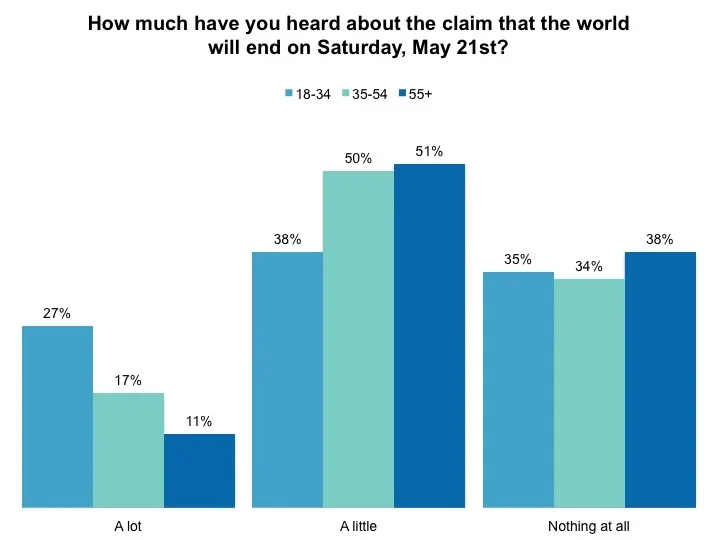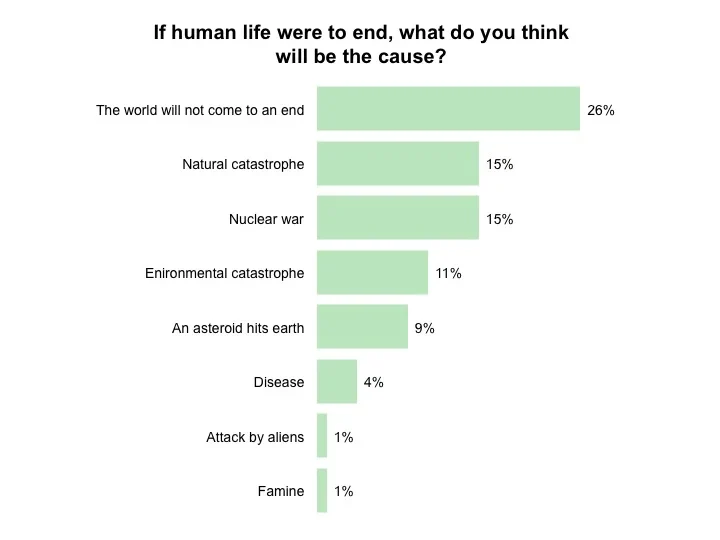Although Harold Camping and his Oakland-based Family Radio have been working hard to alert the world that Judgment Day will happen on May 21st, only 2% of our respondents believed that Doomsday would, in fact, come. A full 74%, on the other hand, expected to return to work on Monday, while 24% did not think that the world would end, but accepted the possibility.
Despite minimal belief, almost two-thirds of Americans had heard of Camping’s predictions (65%). No age-group was more likely to believe the claims, but younger people were more aware of the predictions than older people, with higher percentages in the 18-34 age-group saying that they heard a lot about the claims.

Even though almost all Americans plan on life as usual continuing over the weekend, larger numbers had suspicions about occurrences further down the road. 11% thought that a cataclysmic event would end life on earth in their lifetime. A slim majority (52%) did not believe that life would end, but were open to the possibility.
When asked what this cataclysm might be, our respondents’ three most popular responses were nuclear war (15%), natural catastrophe (15%) and environmental catastrophe (11%). While natural catastrophe was chosen at the same rate in the 18-34 and the 55+ age group, younger respondents were more likely to rate environmental catastrophe as the end of all life on earth and older respondents were more likely to choose nuclear war.

Although our panelists selected no single option for the apocalypse as the clear choice, if it did happen, a majority would see the work of God in it. 28% said God would cause the end of the world and 29% replied that it would be God who ended the world because God causes all things.
Photo Credit: Eli the Bearded








